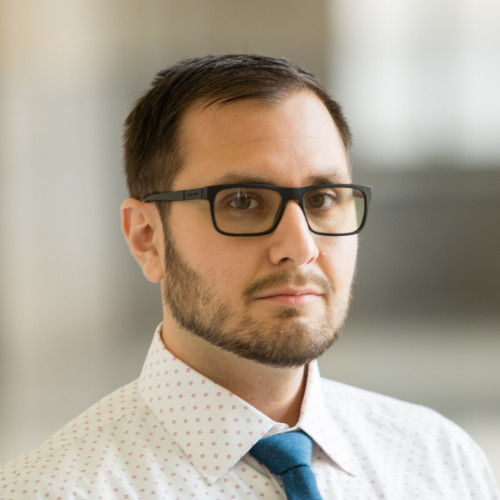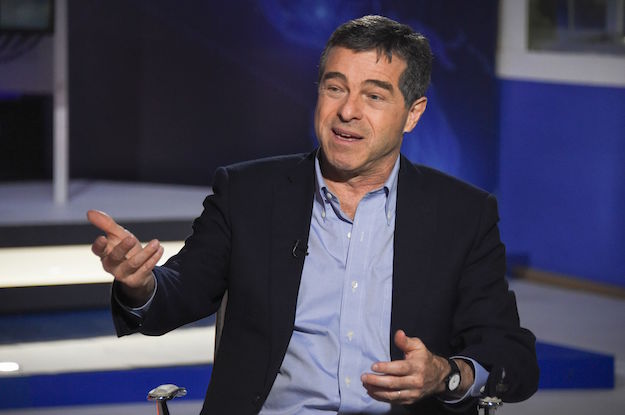This piece has been corrected and updated
Two men from the same political coalition have governed Uruguay since 2005. But with the Oct. 27 presidential election approaching, the country is seeing a rare shake-up of its usually staid and predictable politics.
In fact, new faces and parties are challenging traditional stalwarts and the established political order. That includes the recent resurgence of the once-dominant Colorado Party with the primary victory of outsider Ernesto Talvi, as well as the emergence of a right-wing nationalist party and the ruling coalition’s choice of a little-known city councilmember as its vice presidential nominee.
A loss of momentum for the governing Frente Amplio (Broad Front) coalition helps explain the new space for challenges to the old guard. After 15 years, the Broad Front’s approval ratings are near historic lows as Uruguay’s economy is stagnant, unemployment is high, crime is rising and the country’s position on Venezuela has isolated it from much of the rest of the region. In an open primary on June 30, voter turnout for the Broad Front was 14% lower than in 2014, even as overall turnout for the primaries increased by 9%.
The biggest beneficiary of the Broad Front’s ebb in support is Luis Alberto Lacalle Pou, a senator and son of a former president. Lacalle Pou won the nomination for the center-right National Party in June with, by far, the most votes of any candidate in the country. The party is polling second to the Broad Front and in a hypothetical runoff, polls have Lacalle Pou beating the Broad Front’s candidate, former Montevideo mayor Daniel Martínez.
But while Lacalle Pou’s ascendance was expected – he was runner-up in Uruguay’s last presidential election – it was Talvi’s candidacy that surprised many by upending the race for Uruguay’s third party. Since presiding over the economic collapse of 2002, the Colorado Party had endured disappointing electoral results and a lack of renovation in the party’s leadership and ideas. For almost a decade, the party was led by Pedro Bordaberry, son of former dictator Juan María Bordaberry.
Enter Talvi, who this year ran as an underdog against long-time party elder and two-time president, Julio María Sanguinetti. As he began to gain name recognition, Talvi’s polling numbers improved. Talvi defeated Sanguinetti with 54% of the vote, with the enthusiasm he stirred during the primary campaign helping the party increase its turnout by 32% compared to 2014. With the centrist Talvi as its candidate, polls show the Colorado Party trailing the Broad Front and National Party, but they also give Talvi a plurality of support from voters between 18-29.
Talvi, a technocrat, has a background in think tanks in Uruguay and Washington, D.C., and is moving the Colorado Party to the center from its previous center-right position. In a move that could make the Colorado Party more attractive to disaffected Broad Front voters, Talvi has positioned himself to take back the progressive mantle that the Broad Front had established as its own, while remaining an economic liberal. To that end he has placed a special focus on education as the key to developing the country. He criticizes the Broad Front for being beholden to the teachers’ unions and giving them undue influence over policy – foreshadowing conflict with Uruguay’s combative labor movement should Talvi win.
Another outsider that has shaken up the race is Graciela Villar. After winning the nomination for the Broad Front in June, Martínez chose Villar, a little-known member of Montevideo’s city council, as his running mate. Many within the Broad Front had expected Martínez to pick Carolina Cosse, a former industry minister from former President José Mujica’s party who finished second in the primary. Broad Front leaders like Danilo Astori voiced skepticism over the choice of Villar, who lacks national exposure.
What Villar offers Martínez is a progressive voice to shore up the Broad Front’s frustrated left-wing. After accepting the nomination, she stated the election was between the “oligarchy and the people” and to prevent the return of a “brutal neoliberal project.” In contrast, Martínez maintains a conciliatory tone by seeking to negotiate with the opposition on basic policies for the next government.
The simmering tension between the center and the left of the Broad Front is clear and, without a consistent message, it may put in jeopardy the party’s electoral chances in October.
Finally, the sudden rise of nationalist party Cabildo Abierto (Open Forum), led by former General Guido Manini Ríos, also made waves in typically liberal Uruguay.
The party was formally created in March of this year, the same month that Manini Ríos was fired from his post as head of the army. President Tabaré Vázquez dismissed Ríos after the general questioned the fairness of the judiciary’s handling of cases of former leaders of Uruguay’s military dictatorship.
The nascent party went on to win 4.4% of the primary vote, much more than some other small but more-established parties like the Independent Party. A July Equipos poll later registered the party’s support in the general election at 6%. Open Forum’s success in the primary took the air out of businessman Edgardo Novick’s upstart populist-right People’s Party, gaining votes in the interior of the country and also siphoning off right-wing votes from the Colorado Party.
The policies of Open Forum are not yet clear, but Manini Ríos’ priorities include a tough stance on corruption, immigration and crime. In controversial statements, he argued that during the dictatorship “you could sleep with the doors open.” He would also revoke the legalization of marijuana, and falsely claims that immigrants, many of them Venezuelan, receive better state benefits than citizens, calling this “unjust.”
Given these statements, Talvi says Manini Ríos would not be welcome in a coalition government. On the other hand, Lacalle Pou, from the National Party, has not rejected the possibility of a coalition with Manini Ríos. If Open Forum gains enough support to be a decisive actor in the legislature, it may put at risk the formation of a coalition government between the National Party and the Colorado Party.
Regardless of the outcome of the October election, it is almost certain that the governing Broad Front will be a minority party in the legislature. As a result, Uruguayans are in for months of tough negotiations between the establishment and new, untested leaders. Depending on the performance of the parties, Uruguayans may be in for many more surprises before the new president’s inauguration on March 1, 2020.
A previous version of this piece incorrectly stated that Manini Ríos founded the Open Forum party. He accepted the party’s invitation to be its candidate after it was founded. The piece has also been updated to add further context on the state of the presidential race.
—
Saldías is a researcher for the Wilson Center’s Latin American Program’s Argentina Project and a PhD Candidate at the University of Toronto.









